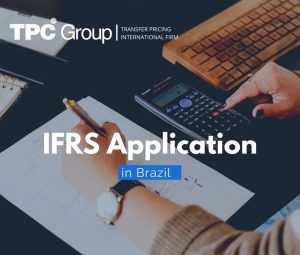Definition
Going concern is when an entity will continue in business for the foreseeable future. The general purpose financial statements are prepared under the going concern assumption, unless management intends to liquidate the entity or cease operations, or there is no other realistic alternative.
Objective in a financial audit
In a financial audit, the auditor’s objective and responsibility is to obtain sufficient audit evidence to evaluate whether management has been able to maintain the going concern assumption in the preparation and preparation of its financial statements. Similarly, during the financial audit, the auditor is responsible for informing management if there is any material uncertainty regarding the entity’s ability to continue as a going concern.
Considerations in assessing the going concern assumption
ISA 570 provides us as auditors or business consultants with application guidance for the going concern assessment, our primary objectives being:
- to obtain sufficient audit evidence from management to assess whether the general purpose financial statements have been prepared under the going concern assumption,
- determine whether a material uncertainty exists related to events or conditions that cast doubt on the going concern assumption, and
- determine the implications for the auditor’s report.
In order to obtain an assessment of the Company’s ability to continue as a going concern, value judgments will have to be made by considering the following factors:
- The degree of uncertainty associated with the Company’s performance.
- The complexity of the Company related to the nature and conditions of its activities, as well as the impacts of external factors.
- Any value judgment about the near-term future will be based on the most recent information.
As mentioned in the factors to be considered in assessing the Company’s ability to continue as a going concern, shareholders and management will have to pay attention to the degree of difficulty or risks related to the business, such as portfolio risk, supply and payment capacity, and risk of indebtedness and departure of qualified personnel. To this factor, add the ability to cope with new laws or measures that may be taken by the Government related to the Company’s activities.
If, during the evaluation of the going concern assumption, there are facts or conditions that may raise doubts, these should be disclosed, based on the audit evidence obtained, in the financial statements, in order to draw the attention of the users of the financial statements so that they may evaluate the possibility that the Company may not be able to continue with its activities.
Material Uncertainty and Auditor’s Evaluation
Today certain companies in Guatemala are at risk of continuing their activities due to the fact that the State declared a national emergency in the country and motivated the social isolation (quarantine) because of the COVID-19 pandemic. During this period the companies have had to comply and suspend their activities or operate in a limited way via teleworking.
The shareholders and managers of companies have a great challenge to restart and develop their activities, evaluating alternatives of entrepreneurship in order to generate economic benefits for the companies and their workers, complying with health and safety protocols.
This event has a significant impact on the financial statements of the companies, therefore, we as auditors must evaluate whether the information disclosed in the financial statements is in accordance with IAS 1 “Presentation of Financial Statements”, so that we can have professional judgment and determine whether there are material uncertainties that may affect the ability of companies to continue as a going concern.



